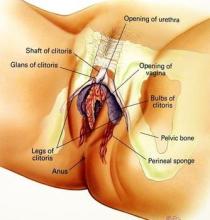
2016年2月24日/生物谷BIOON/--注入抗病毒药物的阴道环似乎提供抗HIV感染的保护,然而在此之前,没有那么多医生能够预测得到这一点。在第一项新的临床试验中,研究人员发现,相比服用安慰剂的女性而言,使用这种阴道环的女性感染 HIV的风险下降了27%。第二项独立的临床试验也有类似的结果:发现31%的下降。这两项临床试验都是在马萨诸塞州波士顿市举行的逆转录病毒和机会性感染年度会议上报道的。
这些由国际研究小组开展的临床试验以HIV疫情比较严重的非洲撒哈拉以南地区的女性为研究对象。公共卫生官员希望考虑周到的长期保护将有助女性保护自己免受感染。
在第一项临床试验中,利用这种阴道环运输药物dapivirine,且能够持续一个月的时间。这项被称作ASPIRE的临床试验随机分配了2629名女性使用阴道环或安慰剂。在平均1.6年的随访后,在使用阴道环的女性中,71人感染上HIV,而在使用安慰剂的女性中,97人感染上HIV。尽管整体上使用阴道环取得适度的成功,但是这项临床试验的研究人员注意到一些复杂因素。其一,在15个研究点中,来自其中2个研究点的女性拥有较低的依从性;当排除这两个研究点后再对数据进行分析时,在使用阴道环的女性之间,HIV感染率下降了37%。再者,在年龄小于21岁的女性之间,这种阴道环的保护性较差,这也与她们较低的持续使用相关。
在第二项被称作The Ring Study的临床试验中,研究人员在南非和乌干达招募了1959名女性。在决定停止在南非开展的安慰剂对照试验以及给任何一名参与女性提供阴道环后,研究人员在早些时候公布了试验结果。
鉴于这种阴道环目前还没有在市场中销售,因此“真实世界”的结果还有待观察。之前的研究已发现当开展的研究不是随机的而且参与者知道他们确实能够得到口服的HIV药物时,他们对使用这种口服药物的依从性经常会增加。(生物谷 Bioon.com)
本文系生物谷原创编译整理,欢迎转载!点击 获取授权 。更多资讯请下载生物谷app。

doi:10.1056/NEJMoa1506110
Use of a vaginal ring containing dapivirine for HIV-1 prevention in women
Jared M. Baeten et al.
Background
Antiretroviral medications that are used as prophylaxis can prevent acquisition of human immunodeficiency virus type 1 (HIV-1) infection. However, in clinical trials among African women, the incidence of HIV-1 infection was not reduced, probably because of low adherence. Longer-acting methods of drug delivery, such as vaginal rings, may simplify use of antiretroviral medications and provide HIV-1 protection.
Methods
We conducted a phase 3, randomized, double-blind, placebo-controlled trial of a monthly vaginal ring containing dapivirine, a non-nucleoside HIV-1 reverse-transcriptase inhibitor, involving women between the ages of 18 and 45 years in Malawi, South Africa, Uganda, and Zimbabwe.
Results
Among the 2629 women who were enrolled, 168 HIV-1 infections occurred: 71 in the dapivirine group and 97 in the placebo group (incidence, 3.3 and 4.5 per 100 person-years, respectively). The incidence of HIV-1 infection in the dapivirine group was lower by 27% (95% confidence interval [CI], 1 to 46; P=0.05) than that in the placebo group. In an analysis that excluded data from two sites that had reduced rates of retention and adherence, the incidence of HIV-1 infection in the dapivirine group was lower by 37% (95% CI, 12 to 56; P=0.007) than that in the placebo group. In a post hoc analysis, higher rates of HIV-1 protection were observed among women over the age of 21 years (56%; 95% CI, 31 to 71; P<0.001) but not among those 21 years of age or younger (−27%; 95% CI, −133 to 31; P=0.45), a difference that was correlated with reduced adherence. The rates of adverse medical events and antiretroviral resistance among women who acquired HIV-1 infection were similar in the two groups.
Conclusions
A monthly vaginal ring containing dapivirine reduced the risk of HIV-1 infection among African women, with increased efficacy in subgroups with evidence of increased adherence. (Funded by the National Institutes of Health; ClinicalTrials.gov number, NCT01617096.)



